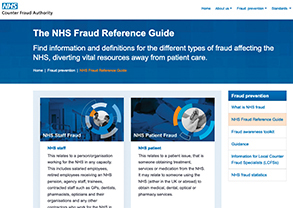Technical review - May 2019
NHS England and NHS Improvement have published patient-level cost collection guidance for ambulance trusts covering 2018/19. The guidance is for ambulance trusts that have volunteered to implement the patient-level costing standards this year. Next year – in 2020, covering cost data for the 2019/20 year – all ambulance trusts will be required to make a submission. All ambulance trusts will also continue to submit reference costs in 2019 as part of the National Cost Collections. A data validation tool update is due to be released in May and the collection window will open in August, with collection feedback and lessons learned shared from the autumn. Activity and financial data should be submitted for all incidents going through 999 call centres or dispatch centres. The collection will include activity by: third party providers; hazard area response teams; medical emergency response incident teams; healthcare professionals; and air ambulance responses (staff only).
NHS finance staff with an NHS email address have been offered free access to the EY Atlas portal, procured through the Technical Accounting Centre of Excellence for the next two years The tool allows access to technical accounting guidance, thought leadership, reference materials and tools from EY’s assurance, tax, transaction and advisory service lines, and accounting standards. The Financial reporting manual and Group accounting manual will remain the main sources of guidance, but the hub provides useful supporting material. To access, email [email protected], copying in other colleagues who would value access, and the hub will arrange access with EY.
The local tariff variations template has been simplified for 2019/20. NHS Improvement said the updated template concentrates on the key information needed to guide future price development and understand how providers and commissioners are working together. Local variations are adjustments to a national price or currency for a nationally priced service agreed by commissioners and providers. Variations could include payments based on agreed activity with a gain and loss share mechanism or a whole population budget. Commissioners should complete the template by 30 June.
The Department of Health and Social Care has issued guidance on the administration of overseas patient debt and data sharing. The document includes information on reasons for supplying debtor information to the Home Office; the information that should be shared and how it will be used; how to inform the patient; and repayment plans. The Department also published guidance on the information patients are entitled to receive under the General Data Protection Regulation 2016 and the Data Protection Act 2018.
 A reference guide setting out the definitions of different types of fraud has been launched by the NHS Counter Fraud Agency. The classifications in the document are already used by the counter fraud agency. The agency said the guide will be expanded during this financial year, including providing fraud prevention advice and awareness resources.
A reference guide setting out the definitions of different types of fraud has been launched by the NHS Counter Fraud Agency. The classifications in the document are already used by the counter fraud agency. The agency said the guide will be expanded during this financial year, including providing fraud prevention advice and awareness resources.
Trusts’ 2017/18 reference cost benchmarking tool and associated guidance are now available on the trust planning portal. The tool uses the latest reference cost data and highlights areas of potential financial efficiency opportunities. NHS Improvement added that the tool will also allow trusts to evaluate their reference costs to improve costing in future collections.
Related content
The Institute’s annual costing conference provides the NHS with the latest developments and guidance in NHS costing.
The value masterclass shares examples of organisations and systems that have pursued a value-driven approach and the results they have achieved.